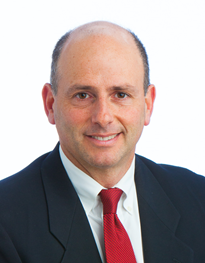Population Health, Mergers Are Key Revenue Cycle Management Trends
 Hospitals evaluating their revenue cycle management strategies may wish they had a crystal ball at their disposal.
Hospitals evaluating their revenue cycle management strategies may wish they had a crystal ball at their disposal.
Healthcare IT Leaders National Accounts Director Joe Mauro says institutions are trying to predict the impact of Accountable Care reimbursement models as they plan for the future.
“We’re moving away from fee-for-service to a model where hospitals get paid by the quality of service they deliver and how well they manage large populations,” says Mauro.
But what that means for revenue cycle management “hasn’t been fully defined yet,” he says, “and that’s causing some hesitation and consternation for hospitals.”
Mauro recently joined Healthcare IT Leaders from Huron Consulting, where he helped customers evaluate revenue cycle and ambulatory solutions. Before that he spent much of his career as National Sales Director for Siemens Healthcare, where he worked with leading health systems to drive performance improvement, process re-engineering, and clinical transformation.
He says the recent acquisition of his former employer by Cerner Corporation is one of the major factors causing hospitals to re-evaluate their Revenue Cycle Management solutions.
“Now that Siemens is owned by Cerner, hospitals have to decide whether they want to move to Cerner for revenue cycle, so that’s creating a lot of churn in the market. It’s a big deal for a CFO to have to move to a new system. A lot of hospitals probably wouldn’t have left Siemens/Soarian if it weren’t for the acquisition.”
>> Employer looking for HIT talent? Contact us.
Epic is the market share leader in Revenue Cycle and Mauro sees hospitals continuing to opt for comprehensive solutions that bring clinical and financial systems together.
Blending Clinical, Financial Information
“Hospitals see less risk in going with one big package that has everything, and especially as Accountable Care Organizations evolve, you want to be able to easily mesh clinical data with claims data all in the same system and look for patterns that may impact care or reimbursement.”
Another factor that could impact reimbursement for hospitals is the election, says Mauro. “Depending on who wins, it’s not far-fetched that we could move to more of a single-payer or Canada model, and that would radically alter how we think about revenue cycle management today.
As hospitals peer into the future and try to manage a multitude of payment models, CFOs and Revenue Cycle systems will need to adapt. “Now more than ever, you have to run your hospital like a business. The ones who have good systems and strong collections and know how to negotiate with payers are doing well. And the hospitals that can’t do that will probably have to merge with another health system to survive,” says Mauro.
In his new role at Healthcare IT Leaders, Mauro will help hospital and health systems address their workforce needs to support a myriad of enterprise solutions, including Revenue Cycle systems and clinical software. "The industry is experiencing massive change and consolidation," says Mauro, "creating demand for skilled IT talent across the spectrum. I’m excited to help our customers meet these challenges."
Contact Joe if your hospital or health system is in the midst of evaluation or implementation of EMR, ERP, HCM, PopHealth, RevCycle or other healthcare solutions.
